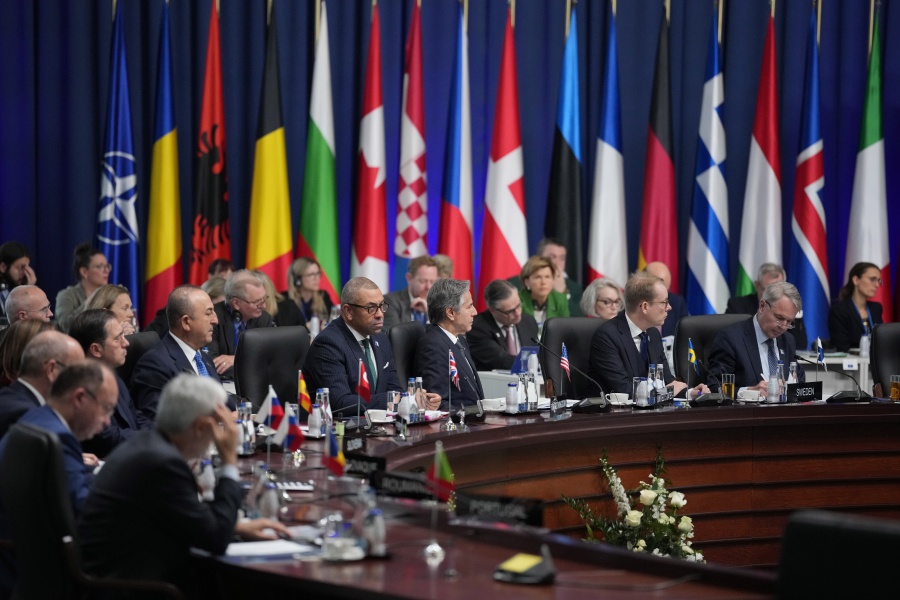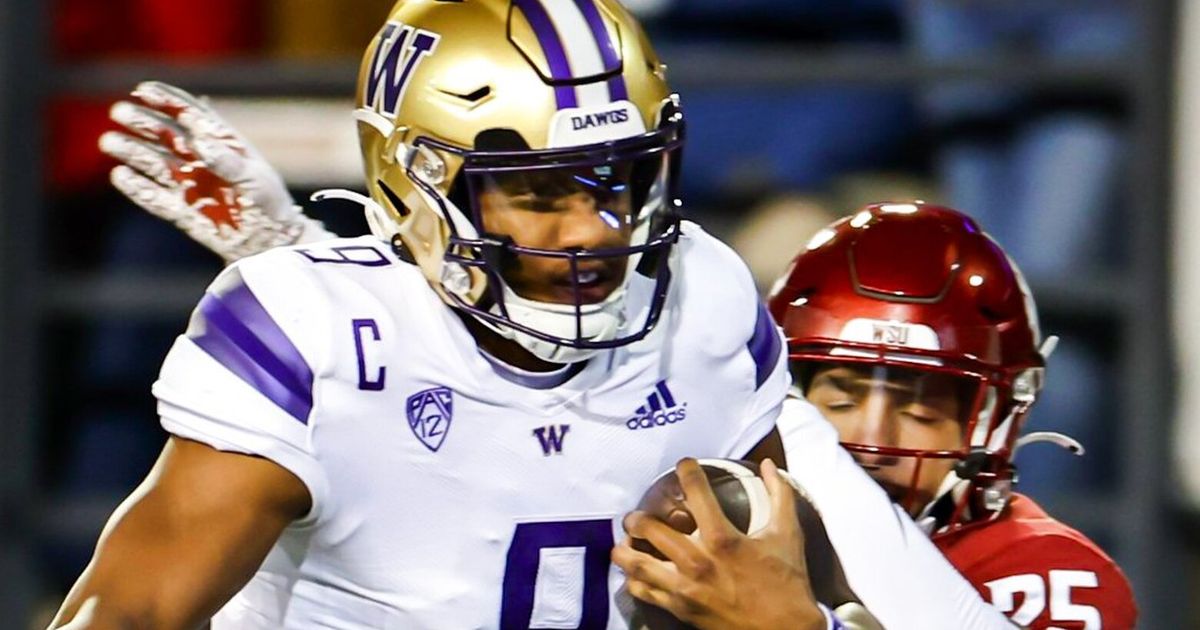BUCHAREST, Romania (AP) — NATO doubled down on Tuesday on its commitment to one day include Ukraine, a promise that some officials and analysts say helped fuel Russia’s invasion this year. The world’s largest security alliance also pledged to send more aid to Ukrainian forces battling Russian forces.
US Secretary of State Anthony Blinken met with NATO foreign ministers in Romania to drum up support for Ukraine as Russia bombs energy infrastructure in the cold winter. Russia cannot stop the expansion of the alliance, NATO leaders said.
“NATO’s doors are open,” NATO Secretary General Jens Stoltenberg said before leading a meeting in the capital, Bucharest.
He emphasized that North Macedonia and Montenegro had recently joined NATO, and said that Russian President Vladimir Putin “will soon have Finland and Sweden as NATO members.” The Nordic neighbors applied for membership in April, worried that Russia could target them next.
“Russia does not have a veto” over countries that join, Stoltenberg said. “We also adhere to this regarding Ukraine’s membership.”
At a meeting in Bucharest in 2008, NATO leaders said that Ukraine and Georgia would one day join the alliance.
Some officials and analysts believe that the declaration, which was pressed on NATO allies by former US President George W. Bush, was the reason for the war that Russia unleashed against Ukraine in February. To justify his invasion on February 24, Putin cited threats to Russia’s security from Ukraine’s ambitions to join NATO.
Stoltenberg said that NATO expansion will not be hindered.
“President Putin cannot refuse sovereign states to make their own sovereign decisions that do not pose a threat to Russia,” said the former prime minister of Norway. “I think he’s afraid of democracy and freedom, and that’s the main challenge for him.”
Ukraine submitted an application for “accelerated accession” to NATO on September 30, but will not join in the near future. With the annexation of the Crimean peninsula, and Russian troops and pro-Moscow separatists holding part of the south and east, it is unclear what Ukraine’s borders will even look like.
Many of NATO’s 30 members believe that the focus should now be on defeating Russia, and Stoltenberg stressed that any attempt to move forward with membership could divide them.
“We are in the middle of a war, so we must not do anything that could undermine the unity of our allies in providing military, humanitarian and financial support to Ukraine, because we must prevent President Putin from winning,” he said.
Beyond Ukraine’s immediate needs, NATO wants to see how it can help the country in the long term by upgrading Soviet-era equipment to modern alliance standards and providing more military training.
Slovakia’s Foreign Minister Rostislav Kacer said allies should help Ukraine so that “the transition to full membership is very smooth and easy” once NATO and Kyiv are ready for accession talks.
In a statement, the ministers pledged to help Ukraine rebuild after the war, saying “we will continue to strengthen our partnership with Ukraine as it advances its Euro-Atlantic aspirations.”
Ukraine, for its part, called for additional supplies of weapons to defend itself, and quickly.
“Faster, faster and faster,” said Minister of Foreign Affairs Dmitry Kuleba. “We appreciate what has been done, but the war continues.”
“In a nutshell,” he said, “patriots and transformers are what Ukraine needs most.” Stoltenberg confirmed that deliveries of such sophisticated missile systems are being considered.
The US is open to providing the Patriots, a senior US defense official told Pentagon reporters on Tuesday on condition of anonymity. While Ukraine has been asking for the system for months, the US and its allies have been hesitant to grant it to avoid further Russian provocations.
German Chancellor Olaf Scholz said on Tuesday that his country offer to send Patriot anti-aircraft missile systems to Poland remains on the table, despite Warsaw’s offer to send them to Ukraine.
The Deputy Chairman of the Security Council of Russia, Dmitry Medvedev, said on Tuesday in his Telegram channel: “If, as Stoltenberg hinted, NATO, together with NATO personnel, supplies the Kiev fanatics with Patriot systems, they will immediately become a legitimate target of our armed forces. I hope the Atlantic impotents understand this.”
At the meeting in Romania, ministers promised military support to Ukraine, others – financial and non-lethal aid.
Slovakia said it was providing 30 armored personnel carriers and more artillery.
The USA announced the allocation of 53 million dollars for the purchase of electrical parts for the power grids of Ukraine. Since early October, the network across the country has been suffering from targeted Russian strikes, which US officials are calling a Russian campaign to weaponize the coming winter freeze.
Estonian Foreign Minister Urmas Reinsalu went further than others, urging his NATO partners to pledge 1% of GDP to Ukraine for military support, saying it would be of “strategic importance”.
However, most NATO allies barely spend 2% of GDP on their own defense budgets.
The foreign ministers of NATO candidates Finland and Sweden are joining the talks. NATO seeks to add the two Scandinavian countries to the defense forces arrayed against Russia. Turkey and Hungary have not ratified their applications. 28 other member states have already done so.







